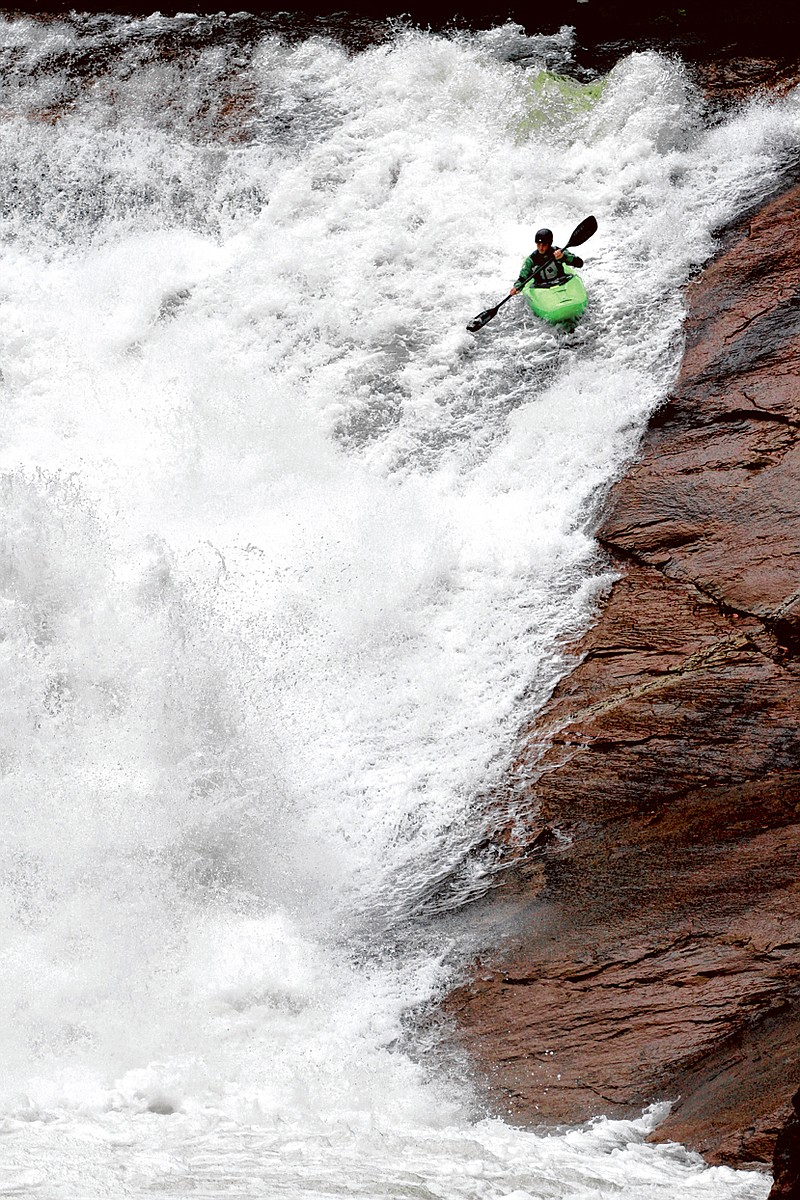Serious whitewater paddlers have only three Sundays this fall to plunge through some of the biggest whitewater in the East. Georgia Power is set to unleash the Tallulah River in Northeast Georgia at 700 cfs, allowing the water to blast through its two-mile gorge and turn the stream below into an epic ride.
And you can bet your boat there will be kayakers and rafters lined-up to test themselves against the gorge's signature Class V rapid, Oceana. "It's a big, exploding thing," says Chattanooga kayaker Bett Adams. "It's such a good run. It's classic."
The stretch of river includes a second Class V rapid, Bridal Veil, and packs as many as 10 Class IV runs into less than four miles. While most of the attention goes to Oceana, AmericanWhitewater.org describes Bridal Veil as "a good-sized slide with an evil hole."
Adams, who has been kayaking for 13 years, agrees. "It's one of the holes that even if you're out of your boat it will still hold you," he says. "A lot of people only get out of that hole with the aid of a rope and another kayaker."
Veteran kayakers say Oceana is not a terribly difficult rapid, but the slide is fast and the surging water blasts 15 feet into the air. "It dishes out a lot beatings," Adams said.
In 1993, Kennesaw, Ga., kayaker John Bell was one of the first paddlers to take on Oceana as part of the team testing for Georgia Power and American Whitewater to see if the Tallulah was runnable. In his report, he named the wave "The Thing." "Nothing could have prepared me for what I saw when I walked around the corner and saw that monster," he wrote. "The Thing is the most incredible roostertail/wave you will ever see."
Couple the water with a remote setting (some scenes from Deliverance were filmed in the gorge) and the intimidating views from the 1,000-foot-deep bottom and you've got the perfect setting for an adventure weekend.
That, plus paddlers are tested before they even hit the water as they have to carry their boats down about 600 steps. "Ask anybody who has carried a boat down there - it's a haul," Adams says.
Do the math: Cfs stands for cubic feet per second. One cubic foot per second is equivalent to approximately 7.5 gallons of water per second. So...700 cfs equals about 5,250 gallons of water flowing per second.
For more information visit Americanwhitewater.org
